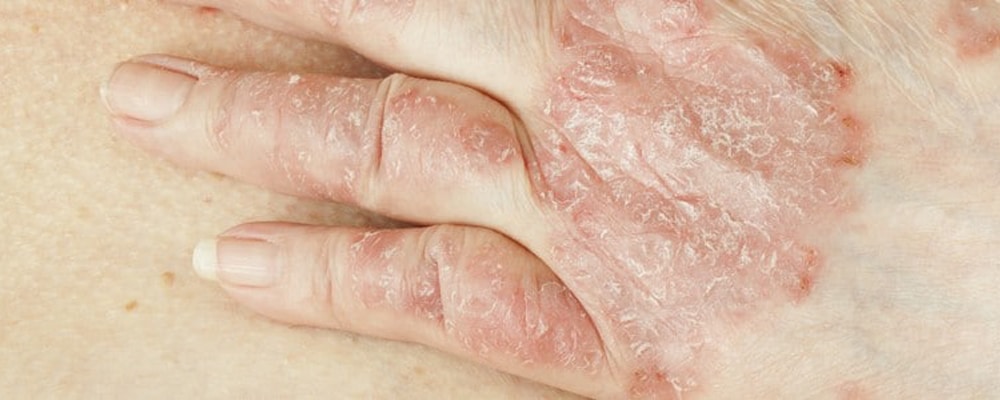Psoriasis is a common skin condition that causes the formation of scales and red patches on the skin. These can be itchy and painful. Psoriasis is a chronic disease that doesn’t have a cure. The goal is to manage symptoms. But you shouldn’t leave plaque psoriasis untreated.
At Skin Care Research, we are currently conducting research trials on plaque psoriasis. If you have the following signs, our clinical trial could be a great option for you to receive treatment and compensation.
What is psoriasis?
Psoriasis speeds up the life cycle of the patient’s skin cells. This causes a build-up of cells on the skin surface. These areas with extra cells form scales and red patches that can be itchy and painful. The goal of treatment is to stop the accelerated rate of skin cell growth.
What causes psoriasis?
There is no cure for psoriasis, and its causes aren’t fully understood. It is thought to be an immune system problem, especially relating to your T cells and white blood cells called neutrophils. T cells usually course through the body looking for viruses and bacteria to attack, but with psoriasis, the T cells attack healthy skin cells by mistake. This causes inflammation.
These overactive T cells also trigger increased production of healthy skin cells, more T cells, and other white blood cells, particularly neutrophils. These cells also travel into the skin causing inflammation and sometimes creating pustular lesions. Psoriasis-affected areas become warm and red, due to dilated blood vessels.
The inflammation triggers more skin cells to be produced and they move to the outermost layer of the skin too quickly — a process that should take weeks occurs in only days. These cells build up on the skin surface in thick, scaly patches.
What are the symptoms of psoriasis?
There are various types of psoriasis, most of which go through cycles of flare-ups and calming down. It can even go into complete remission. Signs and symptoms vary between people, but there are some common symptoms:
- Red patches of skin covered with thick, silvery scales
- Dry, cracked skin that may bleed
- Itching, burning, or soreness
- Thickened, pitted, or ridged nails
- Swollen and stiff joints
- Small scaling spots (usually in children)
These patches can range from just a few spots to major eruptions that cover large areas of the body.
Plaque psoriasis — This is the most common form of psoriasis, where dry, raised, red skin lesions (plaques) covered with silvery scales form. Areas may be small or large, and they can occur anywhere on the body, even inside the mouth.
What can happen if I don’t treat my plaque psoriasis?
Because psoriasis doesn’t have a cure, some patients can opt to do nothing about their condition, or resort to home remedies they’ve read about on the internet. That’s not a good idea.
Left untreated, the symptoms involved with plaque psoriasis will likely worsen. This will add to the embarrassment patients feel during a flare up. Also, psoriasis is an autoimmune disease that can affect your whole body; the visible plaques you see on your body are just one of the many symptoms of the disease. There’s much more going on underneath your skin that is contributing to your condition.
There are various comorbidities that are linked to plaque psoriasis. These can include:
- Psoriatic arthritis or joint pain
- Depression
- Metabolic syndrome
- Crohn’s disease
- Cardiovascular disease
Psoriasis is a frustrating chronic condition that deserves better treatment approaches. At Skin Care Research we are currently conducting clinical trials into new treatment options. You may qualify for one. To find out, call Skin Care Research, (561) 948-3116.

